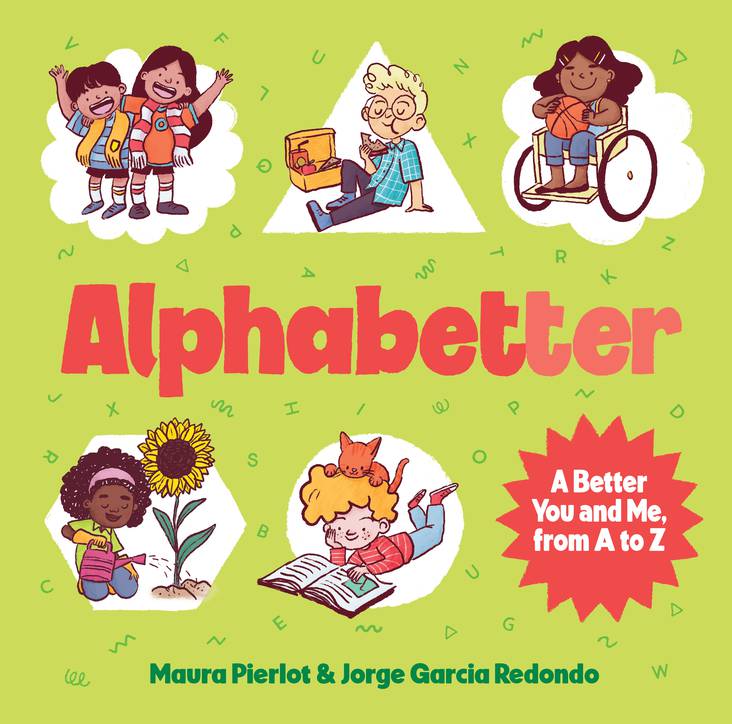
07 Mar Why Character Matters: Empowering Children to Make Good Choices
Re-inventing a beloved classic to teach children the ABCs of ethical decisions by the author of Alphabetter, Dr Maura Pierlot
As parents, we play a vital role in shaping our children’s moral compass and helping them make good choices. Making ethics part of everyday conversations is a great way to embark on this ongoing character-building journey.
But how can we engage in meaningful conversations about ethics with children and steer them in the right direction when they don’t make the best choice? Here are ten ideas to get started:
- Establish Open Communication – Encourage open and honest discussions about ethical dilemmas from an early age. Create a safe space where your child feels at ease expressing their thoughts, concerns and questions about right and wrong. Positive two-way communication can build trust and confidence in children while laying the groundwork for healthy conversations in later years.
- Model Ethical Behaviour – Children learn and imitate behaviours by watching and listening to others. Parents can act as positive role models by consistently demonstrating honesty, integrity, respect and responsibility in daily interactions. When faced with ethical decisions, explain your reasoning to provide insight into your decision-making process and encourage questions.
- Teach Core Values – Identify and discuss core values that build character and guide ethical decision-making, such as empathy, compassion, tolerance and fairness. Using age-appropriate examples, explain why these values are essential and how they apply to real-life situations. Encourage your child to think about their actions and consider the potential consequences.
- Promote Empathy and Broad Perspectives – Encourage your child to consider the feelings and perspectives of others. Discuss how our actions impact others and how we can make choices that promote kindness and understanding. Encourage them to put themselves in someone else’s shoes before making decisions. This change of perspective is a powerful tool that builds empathy and helps children understand themselves and others.
- Discuss Real-Life Scenarios – Engage your child in discussions about ethical dilemmas they may encounter daily. Kickstart the conversation with relatable examples. Talking through real-life scenarios can resolve issues now and offer guidance for the future while helping them see the relevance of ethics to their daily lives.
- Encourage Problem-Solving – Guide your child to find constructive solutions to ethical dilemmas by asking them to explain how they would solve the problem. Be an active participant and a good listener, posing questions to help identify the dilemma and possible solutions. Guide them to think deeply about the ethical implications of their choices, consider the potential outcomes and brainstorm alternatives.
- Foster Critical Thinking – Highlight the importance of finding win-win solutions that respect the needs and values of all parties involved. This helps children develop the ability to analyse situations and assess potential outcomes. Not only does this yield practical solutions, but it also develops valuable critical thinking and reasoning skills.
- Address Mistakes and Poor Choices – If and when your child makes poor choices, it’s crucial to approach the situation with empathy and understanding. Rather than focusing solely on the mistake, emphasise the opportunity for growth and learning. Discuss the consequences of their actions and encourage them to take responsibility for their choices.
- Reinforce Positive Behaviour – Acknowledge and praise your child when they make ethical choices or demonstrate good values. Positive reinforcement encourages children to internalise ethical behaviour and make it a habit. Children are more likely to imitate and repeat a behaviour if they receive positive feedback. Celebrate their efforts in making thoughtful decisions by highlighting the positive impact of their actions.
- Embrace Teachable Moments – Use everyday situations to reinforce ethical decision-making. Whether watching a movie, reading a book or observing real-life events, discuss the ethical dilemmas presented and explore different perspectives. These teachable moments allow for meaningful conversations and will help your child develop a deeper understanding of ethics.
By modelling ethical behaviour and providing guidance when children stumble, we can nurture our children’s moral development and empower them to make positive, informed decisions. But this character-building journey requires patience, understanding and consistent effort. And time – time that many busy parents don’t have. Rest assured that having open, healthy and supportive conversations, where possible, is far more valuable than the number or length of discussions. No matter when and how this engagement comes about, know that talking about ethics will set your child on a good path for life, equipping them with skills to tackle ethical dilemmas with integrity and compassion.
 Maura Pierlot is an author, playwright and filmmaker based in Canberra who holds a PhD in philosophy, specialising in ethics.
Maura Pierlot is an author, playwright and filmmaker based in Canberra who holds a PhD in philosophy, specialising in ethics.
In Alphabetter, children are presented with a word to match each letter of the alphabet. Each word has an accompanying definition and synonyms, as well as a question that allows little ones to engage with the word in a sentence – such as ‘why is it important to be honest?’ and ‘what are you proud of?’.
‘I wanted to write a book that could be used as a resource for this important journey,’ says Maura. ‘It is vital that young readers can see themselves on the pages, so I aimed to devise scenarios that children could relate to both as a concept and in action’.
Her values-themed picture book, Alphabetter – A Better You and Me, From A to Z, is published by Affirm Press, illustrated by Jorge Garcia Redondo, h/b RRP$19.99


